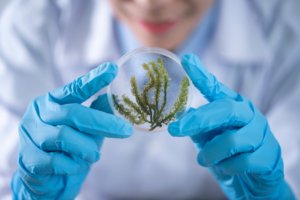
5 sustainable practices for oceans and marine life
Our oceans provide countless benefits to our planet and all the creatures that live here. However, as citizens, we are critical to ensuring that there are sustainable practices for oceans and marine life. It is important that we act now, to undo the current negative effects of marine pollution in order to preserve our thriving underwater ecosystem for the future.
Mind Your Carbon Footprint and Reduce Energy Consumption
The general consensus among scientists is that that carbon emissions must be reduced by 80% by 2050 to avoid a temperature rise of more than 2°C – IPCC Special Report. For example, as temperatures rise due to global warming, more icebergs are melting and at a faster rate than icebergs melted in the past. Global warming is altering the habitats of many Arctic animals as we know it.
Read more
You can measure your ecological effects through a footprint calculator. Try now.
Don’t Purchase Items That Exploit Marine Life

The exploitation of marine corals, turtles, shells, sea cucumbers and starfish not only decreases their numbers, but it also disrupts the fragile ecosystem. This is through the destruction of surrounding habitats in the process of gathering items for sale.
For example, do not purchase coral jewellery and shark made products. Do your part, and try to curb overfishing of rare maritime resources.
Read more.
Reduce the negative impacts of offshore seabed mining

Seabed mining is an experimental industrial field, which involves extracting submerged minerals and resources from the seafloor, either by dredging sand or lifting material in any other manner. The scarping of the seafloor can harm any marine life in the mined area and in surrounding areas.
Can you imagine leaks and spills of fuel and toxic products entering your own household? Be fair and look after our underwater species.
Read more.
Reduce the negative impacts of Tourism and development

As marine tourism expands, so does the impact of the industry on our oceans ecosystems and wildlife–among others, land degradation, pollution, and excessive use of natural resources. Hence, with better planning and practices, tourism could not only safeguard the natural assets that often draw visitors in the first place but also help to lift local people out of poverty.
Read more.
Stay informed about ocean dumping

Today, at least 8 million tons of plastics
The business case for reducing ocean
leak into the ocean each year. The natural
capital cost of marine plastic pollution is
estimated to be at least $4.7 billion per
year in the consumer goods industry
alone.
waste – WBCSD
In the past, communities around the world used oceans for waste disposal and did not cater to sustainability in the ocean. Sadly, little attention was given to the negative impacts of waste disposal on the marine environment. Furthermore, even less attention was focused on opportunities to recycle or reuse such materials. Wastes were frequently dumped in coastal and ocean waters based on the incorrect assumption that marine waters had an unlimited capacity to mix and disperse wastes.
Read more.
Bridging this gap and getting more companies and households on board is essential to enable impact at scale. This also means doing our little bit to make small, but impactful changes towards the environment.
Comment down below your tips to ensure sustainable practices for oceans and marine life. What are some ways you can protect the ocean waters and abundant marine life it holds life to?
Take your child’s learning to the next level and help them discover the magic of our ocean creatures. Have fun with STEM activities by subscribing to InquiBox for this month’s underwater adventure. Sign up now.
Extra reading: check out our posts on 11 interesting videos about space and our blog on 12 popular science myths debunked.






